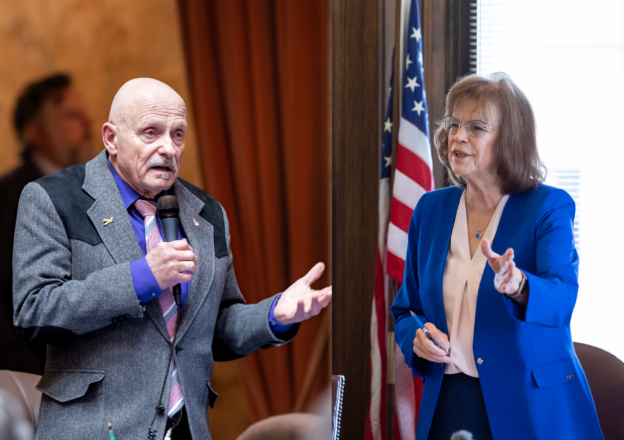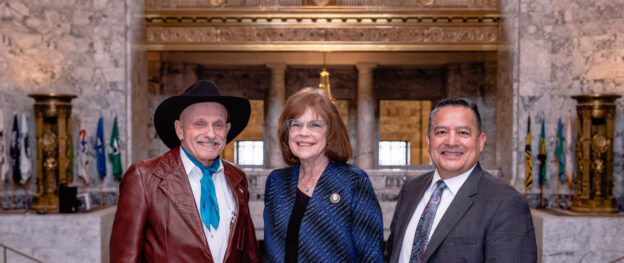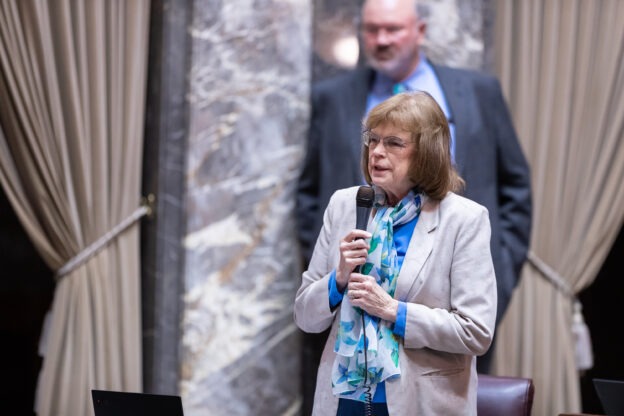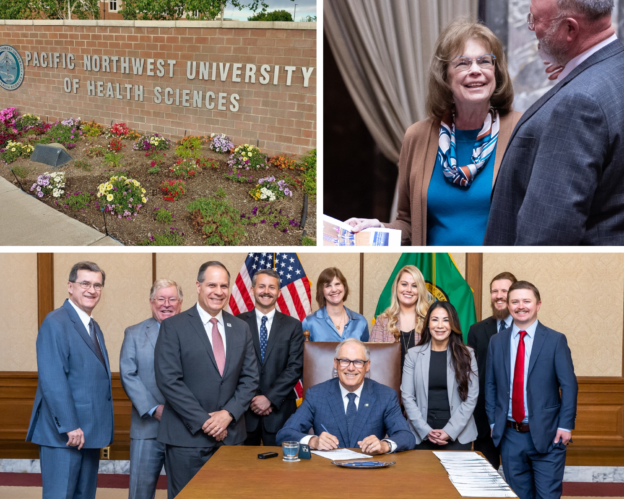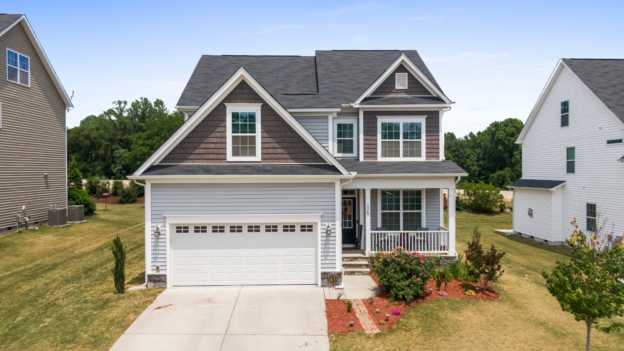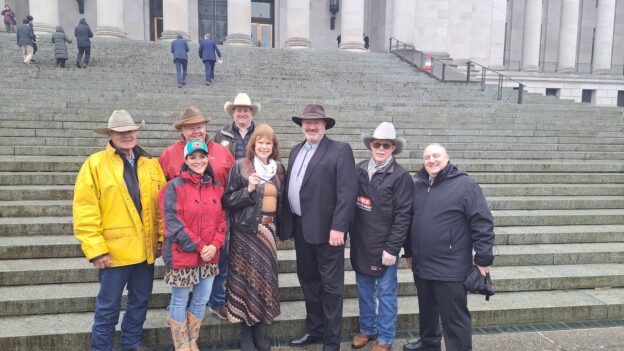Greetings from Olympia,
The 2023 session is nearly over. We are spending long hours voting on proposals that have come over from the House of Representatives or relooking at Senate bills that were amended in the House. We must complete this work and vote on final budget proposals by April 23. 
In odd-numbered years, the state must create a balanced, two-year operating budget. The state Senate unveiled its proposal, Senate Bill 5187, which I voted in favor. It funds important priorities without new taxes, and a smaller increase in spending than we’ve previously seen. While not totally reflective of what a Republican budget would look like, a great deal of it reflects our priorities of public safety, affordability and an emphasis on education.
I have been concerned about what the final budget will look like because of recent proposals by the Democratic majority to impose higher taxes on real estate sales and an outlandish bill, Senate Bill 5770, which would repeal the voter-approved cap on property tax increases. That legislation would allow the state to increase annual property tax growth by 3% and allow local jurisdictions to do the same.
There is no good time to place additional taxes on housing, but especially in the midst of an affordability crisis. People are already struggling to stay in their homes as well. I oppose these efforts and hope the majority will realize the mistake this would be and not include them in the final budget. You can read my statement on this by clicking here.
Please look for my next update with more information on the final budget and other news from Olympia after the Legislature adjourns.
Beef Day and livestock ID
 The governor recently signed legislation I sponsored into law. Senate Bill 5439 will support livestock identification efforts in our state by removing fees and administrative changes to improve the program’s sustainability.
The governor recently signed legislation I sponsored into law. Senate Bill 5439 will support livestock identification efforts in our state by removing fees and administrative changes to improve the program’s sustainability.
The state’s livestock identification efforts are continually improving and my proposal will help the program operate better for producers and the public by removing unnecessary fees.
It was fitting that signing ceremony took place on what we call “Beef Day” here at the Capitol. Ranchers from around the state come to Olympia to educate lawmakers on challenges and needs the industry has while cooking up some delicious food for staff, legislators and visitors. Watch a short video by clicking here.
Click here for more information on my livestock identification bill.
Smart energy choices & broken promises

Over the past few years, there have been significant pushes by the majority Democrats to implement all kinds of “green” energy policies. While they aren’t necessarily taxes in the budget, the impact on Washingtonians is just the same. At the beginning of this year, the state implemented a carbon pricing scheme that you are feeling at the gas pump. Our gasoline and diesel costs are far higher than our neighbors in Oregon and Idaho, which don’t have such a policy.
Additionally, there have been a couple of proposals in these final weeks of the session that concern me. House Bill 1216, which I opposed, relates to siting of clean energy facilities in our state. While it does allow for limited reform to current lengthy environmental review of energy facilities, any benefit from that is negated by the lack of local control for such projects and could create a tax shift for property owners in a project area.
I proposed an amendment to House Bill 1181 that would have put in law the preservation and protection of agricultural land. The legislation makes changes to the already deficient Growth Management Act by requiring climate change “goals” to the required planning. This will add costs and time to needed housing and infrastructure projects without doing anything to improve or protect the environment. My amendment was rejected but we need smart energy policies to ensure our environment and economy are resilient, not onerous schemes that sideline local needs and take money out of local economies.
Rising crime & public safety

One of the most galvanizing policies this year has been fixing the police pursuit ban from 2021. As I outlined in a column earlier this year, rising crime and lawlessness has gripped our state as a result. The Senate acted at the 11th hour to keep one proposal alive, but to date, the House has failed to take any action to respond to the legitimate concerns of the public to empower our police to pursue suspected criminals.
Unfortunately, the Democratic majority has turned its attention to restricting the constitutional rights of law-abiding citizens with even more gun restrictions. Did you know that Washington state, under their leadership, has passed 38 different gun-control measures since 2015? At the same time, they worked to reduce penalties for gun crimes and support policies that have hollowed out our police.
Ironically, the debate on the so-called “assault weapon” ban highlights the differences in our views on the subject of gun violence. In the intent section of House Bill 1240, they say the problem with gun violence is troubled young men. However, nothing in that proposal did anything to address their own admitted problem and they rejected various amendments offered by my Republican colleagues to strengthen penalties for gun crimes, do research or fund mental health interventions.
Another gun-related bill that is headed to the governor’s desk is House Bill 1143, which places arguably unconstitutional barriers to gun ownership. My biggest exception with this proposal is the requirements on training before being able to purchase or transfer a firearm. The bill does not describe what the training is and therefore there are no trainers. Who will certify them? It doesn’t appear that hunter safety courses will count.
In my view, Olympia has failed its most important task this session – public safety. While focusing on headlines and special-interest legislation, fixes to our state’s flawed police pursuit policy and drug possession laws have been watered down.
Read my statement here.












